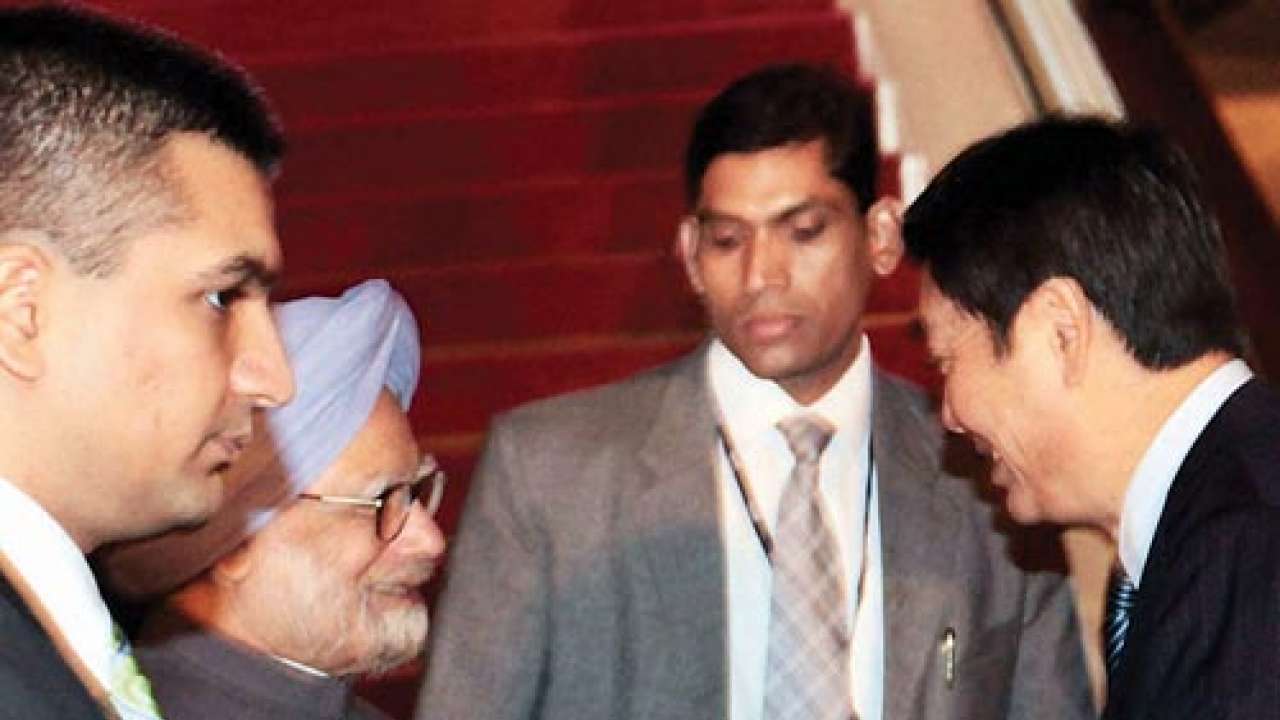
What is the significance of Manmohan Singh’s visit to Moscow and Beijing, probably his last one as prime minister? Beyond all the pomp and show, military and energy deals, and talks on settling India’s Eastern border, lies the real substance. Singh is finally rethinking the approach of putting all of India’s eggs in the United States’ basket and exploring a consolidation of India’s economic-political relations with other countries, especially China and Russia.
There is every reason why Singh should do so with gusto. The US shows few signs of emerging from the post-2008 global Great Recession, leave alone resuming its earlier unrivalled economic leadership of the world and restoring the dollar’s unique status. Nor does Washington remotely carry the political weight in global affairs that it did before it invaded Afghanistan. It is waking up to new power equations in West Asia, as the resumption of talks with Iran shows.
The fact is, the world is becoming increasingly multipolar.
China seems set to overtake the US as the world’s largest economy in a decade — assuming it continues to grow at 7 per cent. At the same time, the Anglo-American “free-market” model of unbridled liberalisation, globalisation and privatisation isn’t working. Neoliberalism, fashioned by Reagan and Thatcher, and imposed as “the Washington Consensus” upon the world, is proving an embarrassing failure in crisis-ridden Western Europe. Its prescriptions only perpetuate corporate dominance, speculation and inequality, and impose harsh “austerity” measures upon working people.
Truth to tell, the Anglo-American model never powered sustained growth and human development anywhere, including its own homeland. Recent major economic success stories, especially from East Asia, were based on “governing the market”, not capitulating to it, upon directing investment, not leaving it to private capital.
Starting with Singh as finance minister, India has blindly followed that very model. But the growth it fuelled did very little to solve chronic problems of widespread poverty and deprivation, or to promote human development. Now even the growth has slowed down.
India has joined numerous alliances and regional groupings including BASIC (with Brazil, South Africa and China) in climate negotiations, IBSA (India-Brazil-South Africa) for South-South cooperation, and BRICS (Brazil-Russia-India-China-South Africa), not to mention ASEAN Regional Forum, Shanghai Cooperation Organisation and others. It has done so by default, not design.
Yet, BRICS holds great potential. It comprises five of the world’s biggest, fastest-growing economies, with over 40 per cent of its population, about 27 per cent of its purchasing-power-parity GDP, 15 per cent of its trade and two-fifths of its foreign currency reserves. It must translate this muscle into popular welfare domestically and a radical reform of the global economy by demanding a greater voice in institutions like the World Bank and the IMF.
These remain heavily dominated by the West, despite recent “reforms”, ostensibly to promote voting-power “parity” between developing and developed countries. In the Bank, the poor countries’ vote-share has only risen from 34.67 to 38.38 per cent. The rich still corner over 60 per cent of the vote. China’s share (3.23 per cent) remains smaller than France or Britain’s (4.20), and Brazil’s lower than the Netherlands’.
While moving away from an obsession with Washington, and widening its options, India needn’t limit itself to BRICS. India can and should develop a range of bilateral and regional alliances/cooperation compacts, most crucially in its immediate, restive neighbourhood.
India can best leverage these new relationships by recycling China’s trade surplus to fund global development, and deploying Russia’s energy sources to meet critical shortages. Domestically, India must rework its policies to tax the rich to provide healthcare, education, food security and other social services necessary for a life with human dignity for all.
Singh has a historic opportunity on hand.